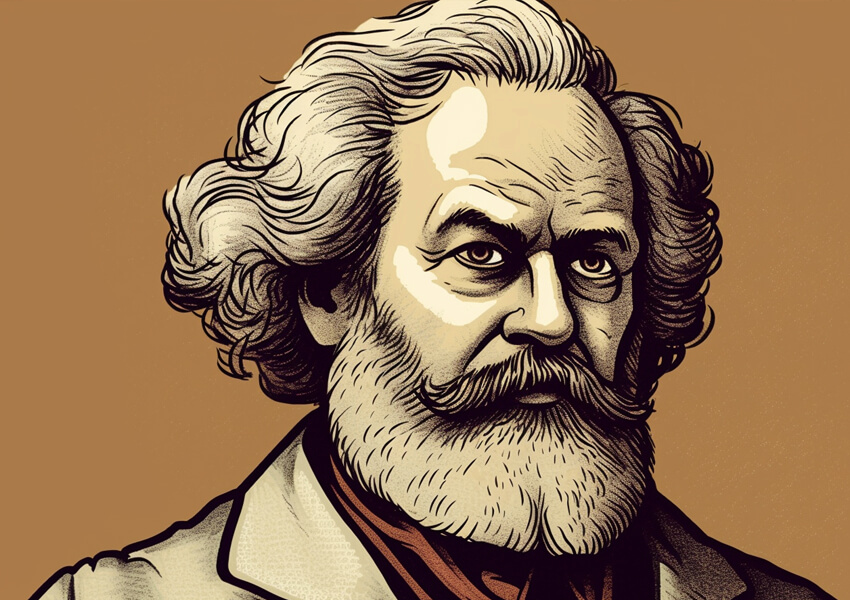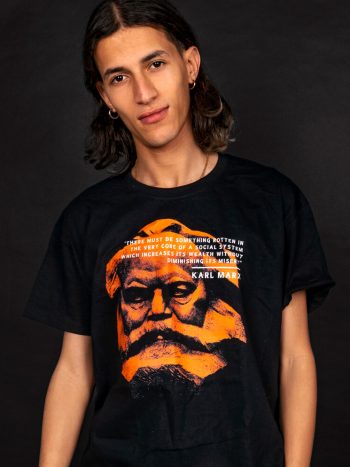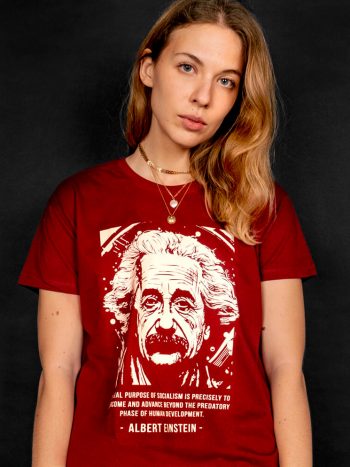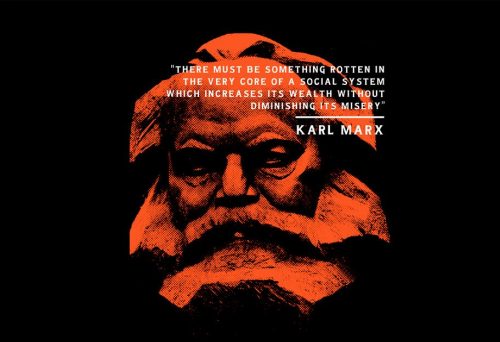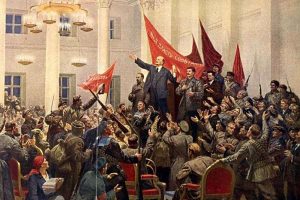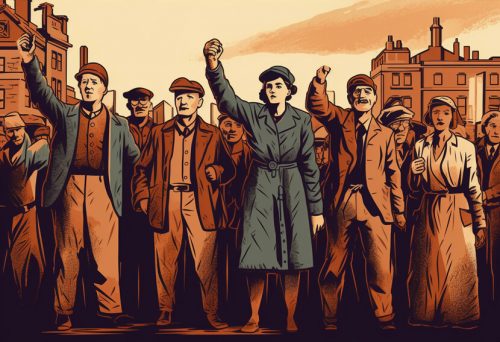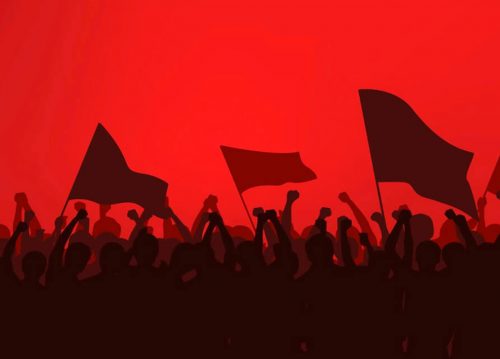The terms Marxism and communism are often used interchangeably, leading to confusion about their meanings and implications. While they share historical and theoretical roots, it is essential to distinguish between Marxism as a socio-economic and political theory and communism as a political ideology and system.
In this blog post, we will explore the relationship between Marxism and communism, highlighting both their commonalities and differences.
Marxism Defined
Marxism, developed by Karl Marx and Friedrich Engels in the 19th century, is a socio-economic and political theory that seeks to understand and transform society. At its core, Marxism analyses the dynamics of class struggle within capitalist societies and proposes a revolutionary path to establish a classless, stateless society. Marxists argue that the inherent contradictions of capitalism, such as the exploitation of the working class by the bourgeoisie, will eventually lead to a proletarian revolution.
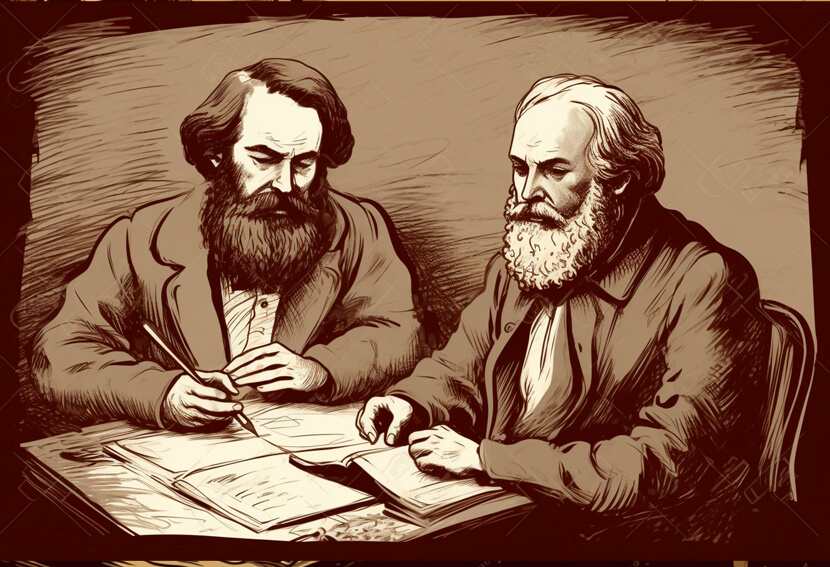
Key Tenets of Marxism
Historical Materialism:
Marxists believe in historical materialism, the idea that the development of human societies is shaped by the material conditions of production. Changes in economic systems, they argue, drive historical development.
Class Struggle:
Marxism emphasizes the central role of class struggle in shaping society. Marx identified the proletariat (working class) and the bourgeoisie (capitalist class) as the primary antagonistic classes in a capitalist system.
Critique of Capitalism:
Marxists critique capitalism for its inherent contradictions, including the exploitation of labor, alienation, and the concentration of wealth and power in the hands of a few.
Communism Defined
Communism, on the other hand, is a political and socio-economic ideology that envisions a classless, stateless society where the means of production are collectively owned and controlled. While communism shares some foundational principles with Marxism, it extends beyond a mere theoretical framework to encompass a vision for a utopian society.
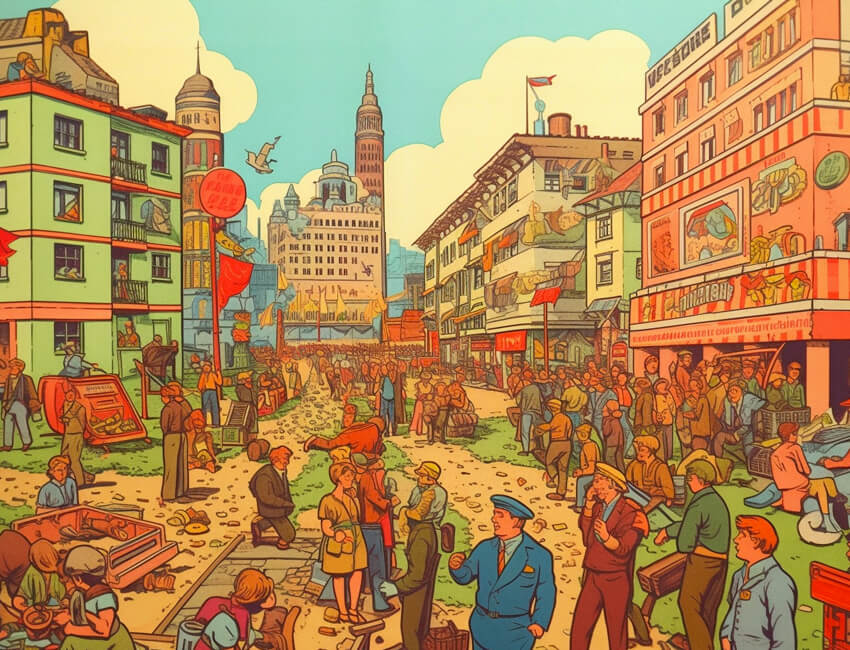
Key Features of Communism
Classless Society
Communism aims to eliminate class distinctions, fostering a society where everyone has equal access to resources and opportunities.
Collective Ownership
The means of production, such as factories and land, are collectively owned and managed by the community in a communist system, eliminating private ownership.
Statelessness
Communism seeks to establish a stateless society where political power is decentralized, and governance is achieved through direct democracy or other non-hierarchical structures.
Relationship Between Marxism and Communism
Marxism serves as the theoretical foundation for communism. Marx envisioned communism as the final stage of human societal development, emerging after the overthrow of capitalism through a proletarian revolution. In this sense, communism can be seen as the practical realization of Marxist principles.
However, it’s crucial to note that not all Marxists advocate for an immediate transition to communism. Some argue for transitional stages, such as a socialist state, as an intermediary step towards achieving communism. The distinction lies in the practical strategies for implementing Marxist principles in the real world.
While Marxism provides the theoretical framework for understanding the dynamics of class struggle and the shortcomings of capitalism, communism represents the practical application of these ideas in the form of a classless, stateless society. Understanding the relationship between Marxism and communism involves recognising that communism is a real-world manifestation of Marxist principles, with varying interpretations and strategies for implementation.
Karl Marx T-shirts
-
$28Add to WishlistAdd to Wishlist
-
$28Add to WishlistAdd to Wishlist
